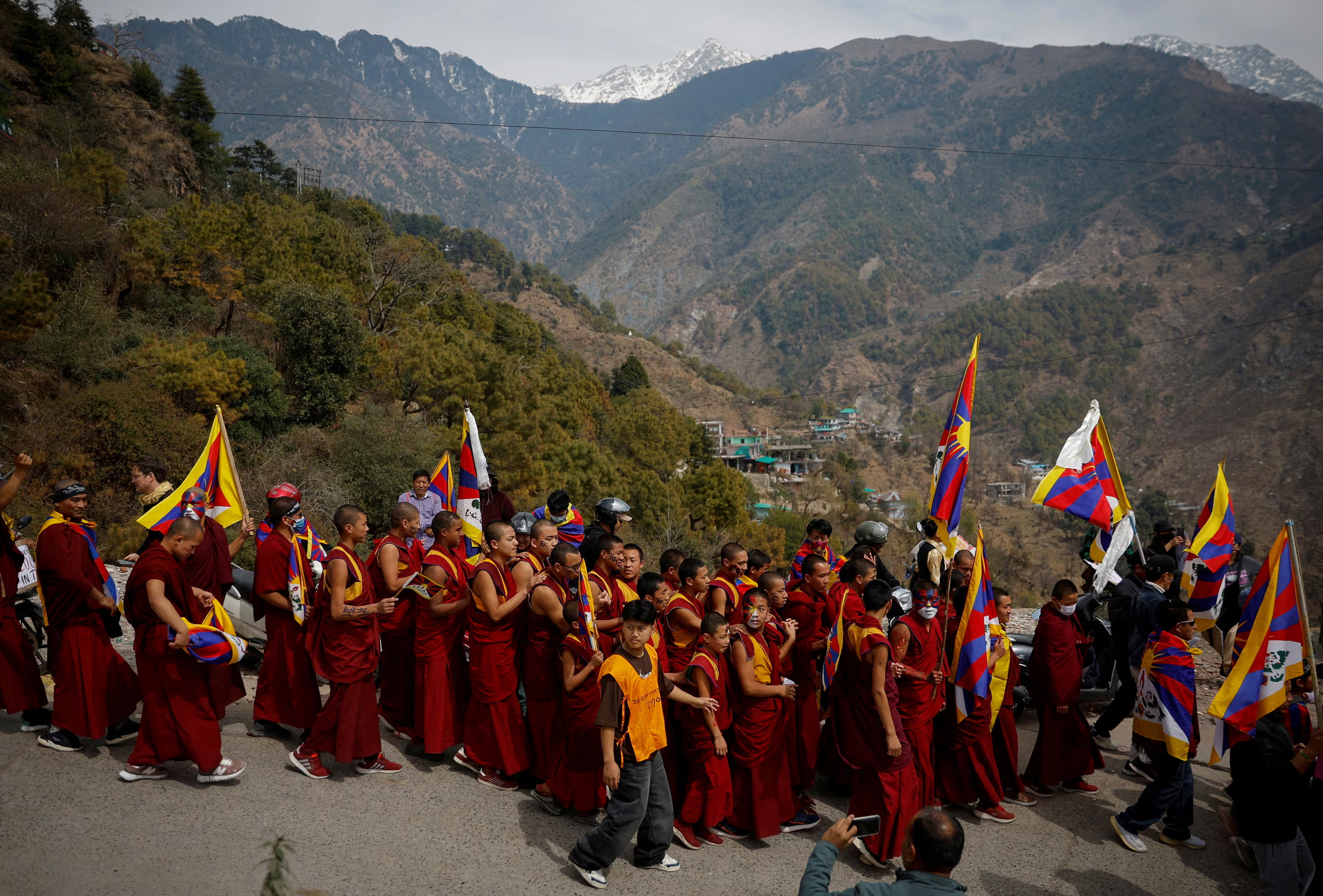Dalai Lama Declares Independence in Succession
As the world prepares to celebrate the 90th birthday of the Dalai Lama, he has made a bold declaration about his succession that challenges China"s authority. In a pre-recorded message, the revered Tibetan spiritual leader stated unequivocally that his reincarnation will be identified through a traditional process led by the Gaden Phodrang Trust, dismissing Beijing"s claims of control over this deeply spiritual matter. According to the NPR report, he emphasized that "no one else has any such authority to interfere in the matter."
China"s Efforts to Control Tibetan Buddhism
The Chinese government has long viewed the Dalai Lama as a political adversary, labeling him a "separatist" under the guise of religion. As reported by Reuters, Beijing insists that it alone possesses the right to appoint his successor, a claim that has been met with widespread skepticism and resistance from the Tibetan community. China’s 2007 legislation establishes that reincarnated lamas must be recognized within its borders, undermining the traditional Tibetan processes that have existed for centuries.

China vows reforms at long delayed party conclave amid ...
Tensions Rise Over Spiritual Authority
The Dalai Lama"s statement comes at a time when Tibetan Buddhism faces a crisis of authority. If a competing successor is identified by China, it could lead to a schism within Tibetan Buddhism, a scenario already hinted at by the complex history surrounding the Panchen Lama and the Karmapa Lama. The stakes are high, as a Wikipedia entry notes, multiple claimants to these positions have historically existed, often leading to confusion and conflict among followers.
The Impact on Tibetan Autonomy and Identity
This succession plan also raises questions about the future of Tibetan identity and autonomy. As tensions simmer between exiled Tibetan leaders and the Chinese government, calls for more assertive policies are emerging within the Tibetan parliament. Members like Namgyal Dolkar Lhagyari assert that the current conciliatory approach has only emboldened Beijing"s heavy-handed tactics. She argues that continued inaction could lead to a complete loss of Tibetan self-determination, a sentiment echoed by many within the community.

As the Dalai Lama turns 89, exiled Tibetans fear a future ...
The Global Context of the Dalai Lama"s Announcement
As the Dalai Lama"s succession becomes a focal point of international attention, it underscores the broader geopolitical struggle surrounding Tibet. The ongoing standoff between China and the Tibetan government-in-exile reflects larger issues of self-determination and human rights in the region. Exiled Tibetans face increasing challenges as China"s influence expands, with reports indicating that border controls have tightened significantly since the 2008 Tibetan unrest.
In Dharamshala, where the Dalai Lama has lived in exile since 1959, the community prepares for celebrations that will draw tens of thousands. Yet, there’s an underlying tension as individuals like Tenzin Tsundue, a prominent Tibetan activist, express concern about the future of their culture and religious identity. The Dalai Lama"s statement is a clarion call for unity among Tibetans, but it also serves as a stark reminder of the fragile situation they face amid external pressures.




![[Video] Pope Leo XIV condemns anti-Christian violence in Nigeria, Bangladesh, and Damascus](/_next/image?url=%2Fapi%2Fimage%2Fthumbnails%2Fthumbnail-1768006244320-mmtpte-thumbnail.jpg&w=3840&q=75)


![[Video] Gunfire between Iraqi security forces and Sadr militias in Baghdad](/_next/image?url=%2Fapi%2Fimage%2Fthumbnails%2Fthumbnail-1768343508874-4redb-thumbnail.jpg&w=3840&q=75)
